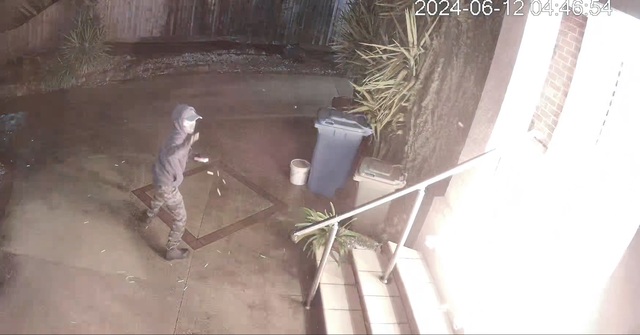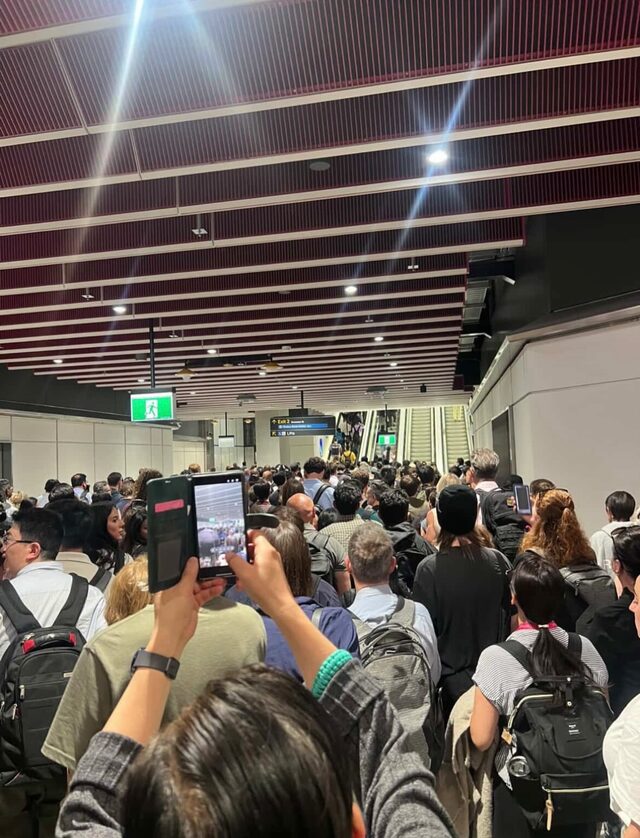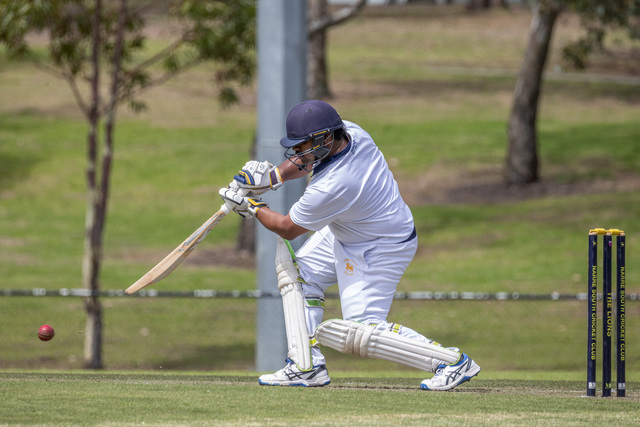Victoria’s former Chief Health Officer has told a Supreme Court hearing that he was “surprised” there was only a single listeria infection despite about 20,000 I Cook Foods sandwiches being delivered to a private hospital over a five-week period.
During a five-hour-plus cross-examination on 14-15 August, Dr Brett Sutton denied he “recklessly” ordered the closure of the Dandenong South-based commercial kitchen as part of an investigation into the death of an 86-year-old listeria-infected patient at Knox Private Hospital.
ICF is suing the Department of Health and Human Services for alleged misfeasance in the shutdown and destruction of the family business in early 2019.
The business argues that Dr Sutton acted with “reckless indifference” to whether ICF’s food was “unsafe” or “unsuitable” as well as to the likely harm to the business.
It argued that Dr Sutton should have waited for more conclusive lab results which were due on 22 February 2019 – the same day that ICF was served the closure order.
The court was shown several emails by DHHS officials also advising to wait for further laboratory analysis.
“It was reckless not to wait,” ICF barrister Marcus Clarke asserted to Dr Sutton.
“No, it wasn’t,” Dr Sutton said – who noted the results actually took a further week.
The lab tests later confirmed listeria mono (LM) found on six food samples in the ICF kitchen were within “safe” levels.
According to Australian New Zealand Food Standards, the safe LM level in ready-to-eat foods is less than 100 colony-forming units per gram (cfu/g).
The official lab results for ICF ingredients proved to be less than 10 – well within the safe range, the court heard.
Dr Sutton told the court that the LM ‘enumeration’ levels were not “relevant” to his closure order, and didn’t recall if he saw the later lab results.
“Enumeration doesn’t change the reality that a case is almost unequivocally linked to food in that kitchen.”
Dr Sutton also didn’t wait for more exact genetic sequencing to determine the “relatedness” between the LM infection in the patient and the ICF food samples.
He said that a “match” on preliminary genetic testing meant “there was a view that we shouldn’t be waiting”.
Binary-type and serotype matching together provide “pretty strong evidence of their relatedness”, he said.
“It’s not perfect because there’s always small genetic changes over time.”
ICF barrister Marcus Clarke asserted that 131 of 146 possible LM strains shared the same serotype as the patient.
Dr Sutton replied he didn’t have to wait due to the matching binary and serotyping as well as the patient’s food history.
On the day of the order, Dr Sutton was in a department team meeting that day which talked through the risk assessment, the laboratory evidence, food history, other food sources and the state of the ICF kitchen, he told the court.
He said the food history was “highly suggestive” that the patient ate ICF food prior to her incubation period.
There were also multiple LM samples in the ICF premises, and concerns about the risk of listeria contamination and cross-contamination and establishing itself in an “environmental niche” in the ICF kitchen, Dr Sutton said.
He said there was a collective decision – “which I absolutely supported” to cease production.
Justice Michael McDonald noted that it was “surprising” that 17,500 ICF sandwiches were delivered to Knox Private Hospital during the five-week investigation period without another reported case of listeria infection.
Dr Sutton said he was “also surprised we didn’t see additional cases” especially in aged-care residents.
He said there could be an escalation in the listeria risk over time, and that there were others with “similar vulnerability” to the patient at risk. There may have been other cases that weren’t diagnosed or reported, he said.
“I would not be surprised if there were individuals with invasive listeriosis and not picked up,” he said.
Dr Sutton conceded the Knox patient could be the “only case” but my fear was … the listeria contamination in I Cook Foods was “increasing over time”.
He said there was “potential” for more contamination to occur and that there would be more infection after the date of closure.
Justice McDonald asked Dr Sutton whether even with the “benefit of hindsight” he denied the possibility that the patient didn’t contract listeriosis from ICF food.
“I do,” Dr Sutton said.
“I don’t think there’s an absolute knowledge you can have about food exposure for any food-bourne illness… The overwhelming weight of evidence suggests it is I Cook Foods.”
In a press conference transcript presented to the court, Dr Sutton said on 22 February 2019 that the ICF kitchen samples hadn’t been linked directly to the patient and was still under investigation.
“I have acted out of abundance of precaution in closing it,” he said at the time.
ICF barrister Clarke asserted there was no need to hold a press conference or to publicly name ICF – since the DHHS had already sent out letters informing ICF clients .
There had been no press conferences for 46 other listeria cases in Victoria, he said.
“Every single time there’s a single case of listeria, you don’t hold a press conference.”
Mr Clarke asked if Dr Sutton was concerned about the impact of the press conference and the closure order on ICF.
Dr Sutton said he was “absolutely devastated by the need to make that decision” to protect vulnerable individuals.
Mr Clarke retorted if he rang ICF beforehand out of his concern for the “destruction and impact”.
“No I did not,” Dr Sutton said. “I was nonetheless absolutely clear on what actions were required.”
He agreed he was aware that ICF’s closure would cause it to breach its supply contracts. He denied he was aware that ICF’s direct competitor Community Chef was funded by DHHS.
Dr Sutton said it didn’t enter his mind to instead close ICF using “emergency powers” – which are used to reduce the possibility of a serious danger to public health.
He told the court he didn’t consider it an “emergency” but an “urgent decision in any case” and that the public was at risk.
Mr Clarke said if there was just one listeria case by that time, there was “no risk or nearly non-existent”. Dr Sutton disagreed.
He said he acted to “protect individuals at risk of unsafe food”.
Dr Sutton also argued that a listeria outbreak could comprise of just a single case.
He insisted the average incubation period was a few days – at odds with a forensic pathologist’s evidence and department material that stated the average incubation period was about three weeks.
A forensic pathologist Professor Johan Duflou told the hearing earlier that it was possible the patient contracted listeria before admitted to the hospital.
She complained of nausea, diarrhoea and abdominal pain at the time – that was consistent with a prior infection, he told the court.
It was “more likely than not” that the patient’s listeria infection had been effectively treated and was “most likely incidental to the death”, he said.
“In my view, the deceased died primarily of her heart condition with resultant small strokes, and this likely resulted in her aspirating and developing pneumonia.”
Dr Sutton said he didn’t believe he was told that the patient had diarrhoea symptoms when first admitted to hospital, didn’t know of her heart issues nor did he know of the cause of death.
He couldn’t recall if a death certificate was provided to DHHS, and said it wasn’t relevant to his decision.
A department email to Dr Sutton said the patient had consumed high-risk foods before going to hospital. It stated “the possibility that the listerosis was acquired while at home is not being dismissed.”
Dr Sutton said he had been told the patient ate foods at KPH, which was supplied by I Cook Foods.
Mr Clarke asserted that there were no hospital records of the actual food she ate – something that Dr Sutton said he wasn’t aware of.
The trial was adjourned for closing submissions on 31 August and 1 September.

















